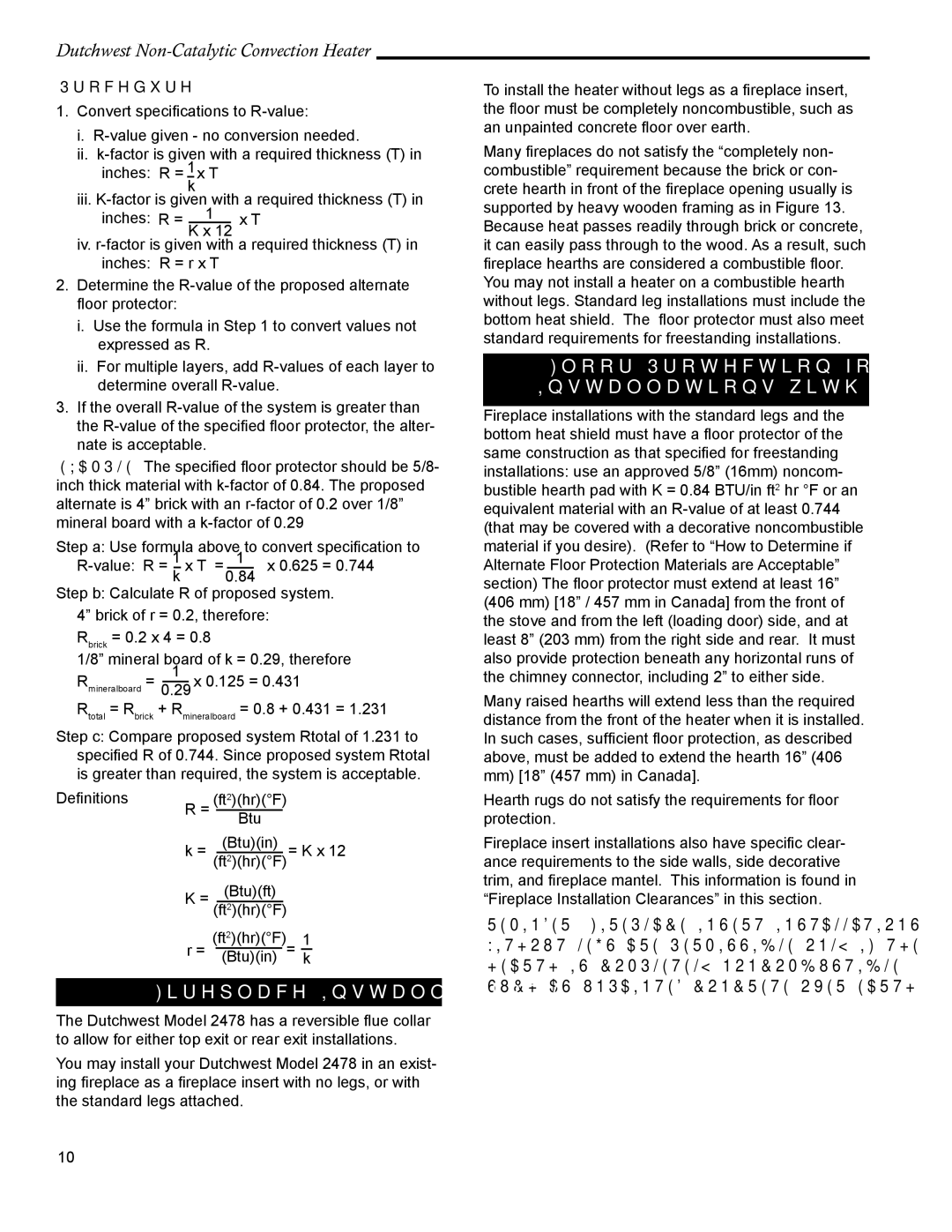2478 specifications
Vermont Castings 2478 is a premium wood-burning stove that embodies quality craftsmanship and efficiency, making it a top choice for homeowners who prioritize both style and functionality. Renowned for its durability and timeless design, the 2478 model is part of the Vermont Castings line, a brand synonymous with excellence in the world of heating appliances.One of the standout features of the 2478 is its impressive heating capacity. It can efficiently heat spaces of up to 2,100 square feet, making it suitable for large living areas or even small homes. This capability is complemented by its easy-to-use, user-friendly interface, which allows for intuitive operation and precise temperature control.
The 2478 employs advanced Catalytic Combustion technology, which optimizes fuel efficiency while significantly reducing emissions. This technology ensures that the stove burns wood cleanly and effectively, maximizing heat output and minimizing the environmental impact. The catalytic converter enhances the combustion process, providing a longer burn time and requiring less frequent refueling.
In terms of construction, the Vermont Castings 2478 features a robust cast iron body that not only contributes to its aesthetic appeal but also provides exceptional heat retention. The stove is built to last, designed to withstand high temperatures while delivering consistent warmth. The cast iron grates and firebox contribute to excellent heat distribution, creating a cozy atmosphere throughout the room.
Another notable characteristic is the large glass door that offers a beautiful view of the flames, adding a visual focal point to any space. The air wash system keeps the glass clean, allowing for an unobstructed view of the fire. A variety of finishes are available, allowing homeowners to choose a style that best fits their décor, from classic black to rich enamel colors.
The Vermont Castings 2478 is also designed with safety in mind. It includes features such as an adjustable air control system for improved combustion management and a built-in heat shield that protects surrounding areas from excessive heat.
In summary, the Vermont Castings 2478 is a highly efficient, stylish wood-burning stove that provides warmth and comfort in a reliable and environmentally responsible manner. With its combination of advanced technology, durable construction, and elegant design, the 2478 is a worthy investment for any home. Whether you're seeking to enhance your living space or reduce heating costs, this stove stands out as a classic choice in the realm of heating solutions.

